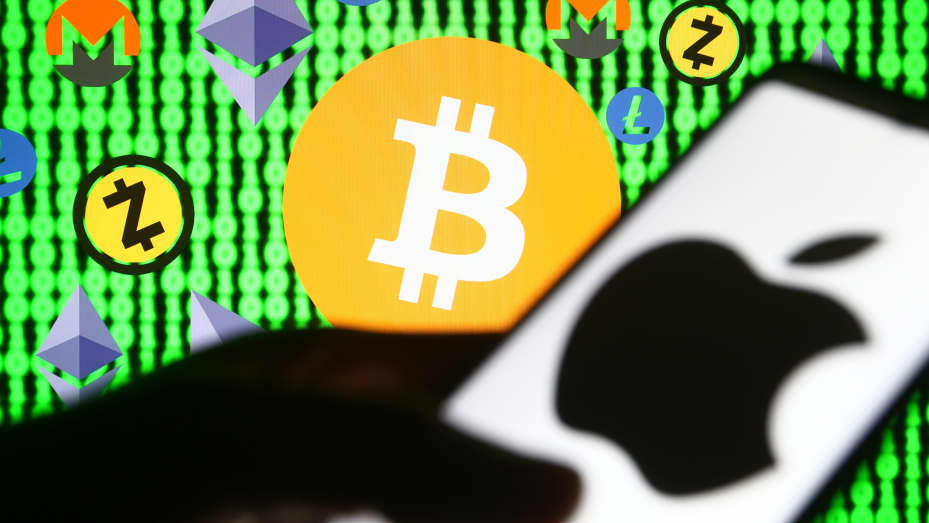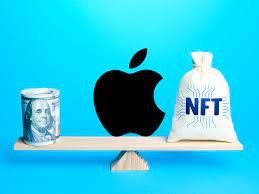Apple is facing additional anti-competitive allegations after modifying the restrictions for non-fungible token-powered applications and introducing more paid-for marketing to its App Store.
Apple made the modifications as part of a series of revisions to the regulations that app developers must follow in order to publish software for iPhones and iPads.
The most significant change is purportedly a relaxation of restrictions governing non-fungible tokens (NFTs). Apps may now sell them directly, according to Apple, if they employ in-app purchases, which Apple takes a 15-30% share of. The new guidelines state that “apps may employ in-app purchases to offer and sell services linked to non-fungible tokens, such as minting, listing, and transferring,” and that “apps may allow users to view their own NFTs.”
However, the technology’s use is carefully limited: apps can only accept NFTs “given that NFT ownership does not unlock features or capabilities within the app.” Apps may enable users to explore other people’s NFT collections, but they may not contain buttons, external links, or other calls to action that steer customers to purchasing methods other than in-app payment.”
This undermines one of the technology’s key potential applications, which is the sale of tradable tokens that grant access to exclusive services. Reddit’s “collectable avatars,” for example, sell for around 2ETH (£2,500) and “give owners with unique perks on the Reddit platform,” according to the company’s support pages. Apps, on the other hand, can give NFTs that unlock functionality if such NFTs are offered for purchase via in-app payments.
Other attempts to monetize social networks have failed miserably. Many applications provide “boosts,” such as Tumblr’s Blaze service or a boosted tweet on Twitter, which let users pay to get their content immediately in front of other users. Apple has now specifically informed developers that certain features must be made available through in-app payments, with a 15-30% fee.
“Digital purchases for material experienced or consumed in an app, including buying adverts to appear in the same app (such as sales of ‘boosts’ for posts in a social networking app),” the business stated.
“For many years now, the App Store standards have been clear that the sale of digital goods and services within an app must employ In-App Purchase,” an Apple representative said in a statement. Boosting is a digital service that allows a person or organisation to pay to expand the reach of a post or profile — hence an In-App Purchase is necessary. This has always been the case, and there are several instances of successful apps.”
Along with the modifications to the App Store guidelines, Apple is also revamping the store itself, adding new advertising spots to the homepage. “With a Today tab ad, your app may feature prominently on the App Store’s first page – making it some of the first material visitors view when they begin their App Store visit,” the firm said to developers.
The steps will sharpen the battle between Apple and some of its most powerful rivals, like Mark Zuckerberg’s Meta and the midsized businesses that support the Coalition for App Fairness. They contend that the App Store’s rigid standards limit their ability to compete with Apple since customers have no alternative means to put applications on their smartphones.
Read:
- Apple Forced to Make iPhones With a USB Type-C Port
- Apple fined $19M for not including charging adapters with iPhones






 Updated (Nov 2022) PTA Taxes For iPhone 11, 12, 13, And 14 Series
Updated (Nov 2022) PTA Taxes For iPhone 11, 12, 13, And 14 Series